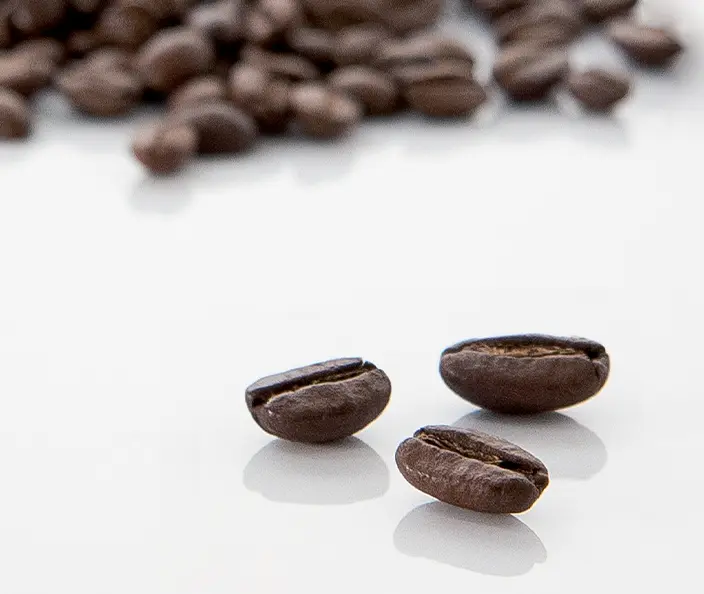Honey Processed
Colombia
The beans for this coffee are sourced from a small cooperative in Colombia. The family farmers produce their coffee in harmony with nature and without the use of pesticides. They dry the beans in the sun together with the pulp. This helps the beans retain their aroma. The pulp has the consistency of honey, which is why it is called honey processed. Nutty in the nose with faint marzipan aromas. Gentle bitterness and a pronounced berry note on the tongue. Full-bodied and persistent fruity notes on the palate.
 Storage & shelf life
Storage & shelf life
Store your coffee beans in an airtight container. Porcelain and ceramic containers work well, but so does plastic. Keep the container somewhere as dark, dry and cool as possible. Ideally, use the beans within 2 to 6 weeks after delivery. Always only grind the amount of coffee you plan to brew for immediate consumption.
JOSÉ VILLAMIL CÓRDOBA CERÓN
FARMER FROM LA VEREDA LA LAJA, COLOMBIA
I use organic farming methods to avoid harming the environment.
"My family is made up of my wife and two daughters, our dog Tormenta, two puppies and a cat," says José Villamil Córdoba Cerón. "I have two other children, but they live in the city." The farmer grows a wide variety of produce on his seven hectares of land, notably coffee and sugar cane, bananas, cassava, cocoa and oranges. The family also has five chickens and a rooster, two cows and two draught horses. "I also work as a naturopath," says Cerón. "It's not easy juggling it all."


 Login
Login





